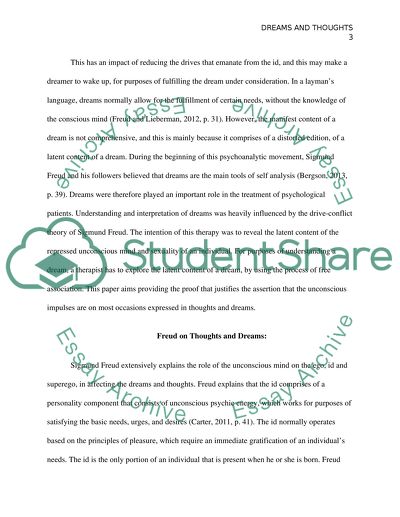Cite this document
(“According to freud unconscious impulses are often expressed in dreams Essay”, n.d.)
Retrieved from https://studentshare.org/psychology/1662954-according-to-freud-unconscious-impulses-are-often-expressed-in-dreams-and-thoughts-assess-the-evidence-freud-offers-to-support-this-claim
Retrieved from https://studentshare.org/psychology/1662954-according-to-freud-unconscious-impulses-are-often-expressed-in-dreams-and-thoughts-assess-the-evidence-freud-offers-to-support-this-claim
(According to Freud Unconscious Impulses Are Often Expressed in Dreams Essay)
https://studentshare.org/psychology/1662954-according-to-freud-unconscious-impulses-are-often-expressed-in-dreams-and-thoughts-assess-the-evidence-freud-offers-to-support-this-claim.
https://studentshare.org/psychology/1662954-according-to-freud-unconscious-impulses-are-often-expressed-in-dreams-and-thoughts-assess-the-evidence-freud-offers-to-support-this-claim.
“According to Freud Unconscious Impulses Are Often Expressed in Dreams Essay”, n.d. https://studentshare.org/psychology/1662954-according-to-freud-unconscious-impulses-are-often-expressed-in-dreams-and-thoughts-assess-the-evidence-freud-offers-to-support-this-claim.


